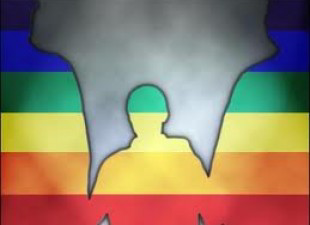
On February 19, 2013, the Grand Chamber of the European Court of Human Rights issued an important judgment on sexual orientation discrimination pertaining to family life. The Court specifically addressed the issue of adoption of a child by a “second parent” in a same-sex relationship. In X. and Others v. Austria, the applicants were two Austrian women, living in a stable homosexual relationship and the biological son of one of the partners. The child was born in wedlock and his mother had sole custody of him. The couple’s complaint alleged that the refusal of the domestic Austria courts to allow of one the applicants to adopt the biological child of her partner constituted discrimination contrary to Articles 8 (respect for private and family life) and 14 (prohibition on discrimination) of the European Court of Human Rights. The Austrian Supreme Court stated that it was a “legal impossibility.”
Austrian law prevented same-sex couples from jointly adopting the biological child of one of them, which is called second-parent adoption. It only allowed registered partners to adopt as individuals. Second parent adoption was only available to married and unmarried opposite sex couples because of Article 182(2) of the Civil Code, which required second parent adoption to be formed within opposite-sex couples.
The Grand Chamber of the European Court of Human Rights held by a 10 to 7 vote that there was a violation of Article 14 taken in conjunction with Article 8 of the Convention.
The Court found that Austrian law discriminated against same-sex couples by preventing them from jointly adopting the biological child of one of the partners when an unmarried different sex couple would have been permitted to adopt together. The Court further held unanimously that there was no violation of Article 14 taken in conjunction with Article 8 where the applicants’ situation was compared with a married couple and child. The Austrian Government failed to show why such a prohibition was necessary for the protection of the traditional family.
I strongly agree with the Court’s judgment and believe it was the right decision. How do you feel about the judgment of the European Court of Human Justice? Did it get right? Is this a positive step towards ending discrimination against gay men and lesbians?
Picture: Paperblog
Source: ECHR
Source: ECHR
I agree with the ECHR’s ruling on this case because it is obvious from the facts that the couple were discriminated and deprived of their fundamental rights under Article 8 and 14 of the Convention. It seems to me that the Austrian law fails to provide equal opportunities to all of its citizens regardless of their sexual orientation. Further, one of the partners is already a biological parent of the child so this fact alone strengthens their case. I believe all the countries in the world should develop, change, or amend their laws to provide equal rights for gays and homosexuals.
Even in many developed countries, including the USA, gay and lesbian rights are still in the process of development. Therefore, I believe that ECHR’s judgment regarding this case is definitely a positive step towards fully ending discrimination against gays and lesbians and further encouraging and leading all the countries around the world to change or develop their laws to satisfy and meet the criteria set forth for fundamental rights and freedoms for all.
There are far too many children in the world who are forced to grow up orphans or in an unstable household. If the facts of this case are true it seems like these two women are stable and able to provide a loving and nurturing environment for the child. Not only was the court correct when it ruled that the Austrian policy discriminated and deprived individuals’ fundamental rights under Article 8 and 14 of the Convention; but it also infringed on the rights of those children who are raised in these stable environments. It must be thoroughly damaging for a child to know that although their parents provide everything and are everything a parent ought to be the government does not recognize them as your parents due to their “untraditional” lifestyle. This is the right step and many other countries ought to follow suit. It truly doesn’t matter who is raising a child just so long as the child is loved, provided for and nurtured.
I feel that if people make good parents to children, than they should be allowed to adopt and be considered the parents to the children. Too many children are orphans or looking for homes. If the countries do not allow gay couples to adopt children, this is a disgrace. If the gay couple will provide the child with a good home, love and support; there is no excuse to deny the gay couple this right. By not allowing gay couples to adopt children it is not only unfair to the couples but to the children who want to live in a place they will consider home. It is so difficult for people to adopt in general, that there are some couples who are discouraged from adopting. If gay couples are included in the population of people who can adopt it will increase the rate of children who get adopted.